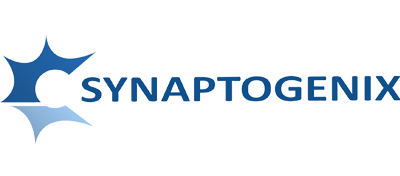Neurotrope Announces Participation at the 20th Annual Rodman & Renshaw Global Investment Conference in New York City September 4-6, 2018
NEW YORK, Aug. 28, 2018 /PRNewswire/ — Neurotrope, Inc. (NTRP), a clinical-stage biopharmaceutical company developing novel therapies for neurodegenerative diseases, including Alzheimer’s disease (AD), today announced it will be featured as a presenting company at the 20th Annual Rodman & Renshaw Global Investment Conference, sponsored by H.C. Wainwright & Co., LLC. The conference is being held on September 4-6, 2018 at the St. Regis New York Hotel in New York City.
The Company has also been selected to present at the prestigious 25th Annual NewsMakers in the Biotech Industry on Friday, September 7th, 8:30am Eastern Time, at the Millennium Broadway Hotel and Conference Center in New York. This presentation will not be available for webcast.
Drs. Charles Ryan, and Daniel Alkon, Neurotrope’s CEO and President / CSO, will provide an overview of the Company’s business plan and technology during their live presentations and they will also be available to participate in one-on-one meetings throughout the days with investors who are registered to attend the conferences.
Neurotrope is currently conducting a Confirmatory Phase 2 clinical trial using its lead drug Bryostatin-1, in patients with moderate to severe AD. The therapeutic target of Bryostatin-1 is PKC epsilon. Regeneration of new synaptic networks by PKC epsilon’s coordination of synaptic growth factors such as BDNF, NGF and IGF is believed to be responsible for the improvement of patients’ cognitive function, recently observed in Neurotrope’s Exploratory Phase 2 trial for moderate to severe Alzheimer’s patients. These improvements in patients Severe Impairment Battery (SIB) scores were observed, even 30 days after completion of all dosing. Activation of PKC epsilon also activates enzymes such as IDE, ECE and neprilysin. The function of those enzymes are known to degrade A Beta oligomers. PKC epsilon activation also inhibits GSK3beta, which inhibits the production of hyperphosphorylated tau. These multi-modal effects caused by PKC epsilon activation are performed through the activation of innate enzymes in the brain, as opposed to the delivery of monoclonal antibodies currently being utilized by most of the sponsors conducting AD clinical trials.
If you are an institutional investor, and would like to attend the Company’s presentation, please click on the following link (www.rodmanevents.com) to register for the conference. Once your registration is confirmed, you will be prompted to log into the conference website to request a one-on-one meeting with the Company.
Event: 20th Annual Rodman & Renshaw Global Investment Conference, sponsored by H.C. Wainwright & Co., LLC
Date: September 6th, 2018
Time: 4:40 – 5:05 PM (Eastern Time)
Location: Maisonnette Lower Level; St. Regis New York Hotel
A live webcast of presentation at the Rodman conference will be available on the Company website in the investors and media section under events and presentations. The presentation will also be archived on the Company’s website and be available for replay.
Below is a link to the webcast:
http://wsw.com/webcast/rrshq28/ntrp/
About Neurotrope
Neurotrope is at the forefront of developing a new approach to combating AD and other neurodegenerative diseases. The Company’s world-class science offers the potential to realize a paradigm shift to overcome one of today’s most challenging clinical problems — finding a way to slow or even prevent the progression of AD.
In addition to the Company’s Phase 2 trial of Bryostatin-1 in advanced AD, Neurotrope has also conducted preclinical studies of bryostatin as a potential treatment for Stroke, Traumatic Brain Injury, and Fragile X Syndrome, Niemann-Pick Type C disease and Rett Syndrome—rare genetic diseases for which only symptomatic treatments are currently available. The FDA has granted Orphan Drug Designation to Neurotrope for Bryostatin-1 as a treatment for Fragile X Syndrome. Bryostatin-1 has already undergone testing in more than 1,500 people in cancer studies, thus creating a large safety data base that will further inform clinical trial designs in AD.








